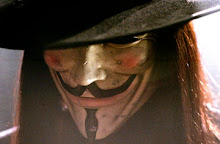這下丟臉了
國際上最被商業人士研讀的期刊之一的經濟學人
報導了這次的中國毒奶粉事件
這下全世界都知道
在中國
自己人會對自己人下毒手
連對小孩子都不會心軟
China's baby-milk scandal
Formula for disaster
Sep 18th 2008 | SHIJIAZHUANG
From The Economist print edition
A scandal in China over deadly baby milk
 “QUALITY and safety are the foundations of social harmony,” proclaim posters at the headquarters of the Sanlu Group in Shijiazhuang, capital of China’s northern province of Hebei. Sanlu was until recently one of China’s biggest producers of milk powder. Now, dozens of people, many clutching infants, queue in the hot sun outside to return powder that could be contaminated with a potentially lethal chemical. The harmony of China’s consumers has rarely been so tested.
“QUALITY and safety are the foundations of social harmony,” proclaim posters at the headquarters of the Sanlu Group in Shijiazhuang, capital of China’s northern province of Hebei. Sanlu was until recently one of China’s biggest producers of milk powder. Now, dozens of people, many clutching infants, queue in the hot sun outside to return powder that could be contaminated with a potentially lethal chemical. The harmony of China’s consumers has rarely been so tested. The safety scandal engulfing not only Sanlu, fingered as the main culprit, but much of China’s dairy industry, is an embarrassment to China’s leaders. In July last year, after widespread complaints at home and abroad about tainted Chinese-made food and medicine, the authorities executed a former head of the country’s food-and-drug safety agency for taking bribes. This year, to improve monitoring, the agency was put under the Ministry of Health. The sale of tainted milk powder, which has so far made more than 6,000 infants ill and by Thursday September 18th had killed four, shows controls remain dangerously slack.
The government blames middlemen who collect milk from dairy farmers. They allegedly added water to increase its volume and, to disguise this, mixed in melamine, a chemical used to make plastics, which can deceive inspectors about the milk’s protein content. Melamine gained notoriety last year when several pets in America died after eating food contaminated with it by Chinese-made additives.
The central government has boasted it was quick to react to the latest problem. But the chronology revealed so far suggests otherwise. It has fuelled speculation of a delay to make sure the Olympic games in August were not marred by a food scare.
The government of Gansu province in China’s west says it told the Ministry of Health on July 16th about an unusual upsurge of kidney stones among infants who had all drunk the same brand of milk. It was not until September 1st that the ministry says its experts tentatively concluded that the powder had caused the sickness. Still, nothing appeared to happen.
Prodding from the government of New Zealand may have been what eventually goaded the Chinese authorities into action. On September 8th it told them what it had learnt from Fonterra, a New Zealand dairy company that owns 43% of Sanlu. Fonterra says it was told by Sanlu of a problem with the powder on August 2nd, six days before the games.
Helen Clark, New Zealand’s prime minister, said Fonterra had tried “for weeks” to persuade local officials to allow a public recall. Instead, in an unpublicised recall, powder was withdrawn from shops. Fonterra has defended its decision to keep its information under wraps for so long. “If you don’t follow the rules of an individual market place then I think you are getting irresponsible”, says the company’s chief executive, Andrew Ferrier.
Eventually, on September 11th, Sanlu announced a nationwide recall of 700 tonnes of powder. Two days later the Ministry of Health gave its first news conference on the crisis and the cabinet declared a national food-safety emergency. A government investigation found smaller traces of melamine in milk powder from 21 other companies, including leading brands such as Inner Mongolia Yili Industrial Group (an Olympic sponsor, though the government says no melamine got into the dairy supply for the Olympics or the Paralympics, which ended this week).
Heads are now rolling. Several milk dealers have been arrested. The mayor of Shijiazhuang has been dismissed. Sanlu’s boss, Tian Wenhua, has been fired and arrested. Around the country, milk powder is being withdrawn from shelves, leaving, as one Western expert on China’s dairy industry puts it, “not much but Nestlé”, a Swiss group whose milk powder is not implicated in the scandal. Sanlu’s production has been halted. Some other companies are recalling their milk powder too. The government has extended its investigations to a variety of dairy products.
But officials still appear nervous about public reaction to the news. Chinese journalists say the Communist Party’s Propaganda Department has ordered all but the party’s most trusted media to refrain from investigating the story. At Sanlu’s headquarters people lining up to return their powder complain that the local press has barely covered the issue.
Extra police have been deployed around Sanlu’s headquarters and the city’s main children’s hospital. Across China, anxious parents are flocking to have their infants tested for kidney stones. One grandparent blames the scandal on corrupt collusion between dairy businesses and local officials. “It would not have happened in the days of Mao Zedong”, he says. Harmony has yielded to discord.
-------------------------------
Formula for disaster
我從文章的觀點來看
應該翻成''奶粉災難''
或者''奶粉造成的災難''
這篇文章是9/18跟著期刊發出
可以作為目前的事情發展的小評
''so far made more than 6,000 infants ill
and by Thursday September 18th had killed four''
至今超過6000的嬰兒罹患相關病變
4名孩童死亡
從這數字大家可以看到事情的嚴重程度
不過更糟更令人錯愕的是
這整體事件是中國官方刻意的壓抑
不願意將事實即刻公佈並作處理
最後是因為三鹿集團的4成股份是在紐西蘭的外資手上
(三鹿在2008/8/2已經告知外資此一事件)
經由外資要求三鹿集團作相關後續動作 卻未見有所動作
最後會爆發出來
是因為這起國內重大事件已經升級到外交事件
紐西蘭官方要求中國政府有所作為
接下來局面大出人意料之外
因為不只是只有三鹿有三聚氰胺的添加
中國總計有22生產奶粉的廠商都出現此一致病物質
幾乎包含所有國內廠商
更扯的是現在連牛奶都檢驗出三聚氰胺... ...
不過
中國政府不怕
因為他們黨國一體
媒體輿論受到官方的控制
呵呵
沒有人可以讓政府負出應有的政治責任
官方也是繼續如此的裝傻
將責任推給下游的牛奶中盤商
抓了些人來交差
''The central government has boasted it was quick to react to the latest problem.''
他們還讚揚自己處理反應的相當迅速...
好一個中國官方
不過台灣政府也是如此
果真是不要臉則天下無敵
--------------------------
紐西蘭派大使交涉 中國才正視毒奶粉事件
撰稿‧編輯:楊明娟 新聞引據:中央社
根據紐西蘭全國性日報「紐西蘭前鋒報」15日的報導,綠黨質疑三鹿的合資伙伴恆天然集團(Frontera)為何不早點將乳品發生問題的事情公諸於世。
紐西蘭總理克拉克說,恆天然要求儘快全面回收,但遭到中國地方政府官員拒絕。 她說,恆天然在9月5日向紐西蘭政府反應,紐西蘭政府8日決定責成駐北京大使布朗向中國中央政府表達關切,北京政府才迅速採取行動。
恆天然集團擁有三鹿43%的股份,在董事會佔有3席。他們在8月2日被告知,三鹿生產的嬰兒配方奶粉出現污染的問題。三鹿當天就在業內進行回收,至於公開的回收行動,是在上個星期才開始。
恆天然公司執行長費里耶表示,恆天然和三鹿已竭盡所能回收問題產品。這起食品污染事件至少已經造成2名嬰兒喪生,另有數目不詳的嬰兒健康受損。
費里耶說,恆天然希望能早一些公開回收問題奶粉,但做為三鹿的合資伙伴,他們必須遵守中國方面的程序和規定。
恆天然公司認為,有人把三聚氰氨加到提供給三鹿的生奶中。該公司產品在生產、儲存和銷售過程中被加入三聚氰氨的可能性遭到排除。








